Turkey says it struck a ‘terrorist’ convoy in Syria; Kurds say it was civilian
The Turkish Armed Forces (TSK) said it struck a convoy “carrying terrorists, weapons and ammunition” near the mainly Kurdish region of Efrin in Syria on Thursday, February 22, but Kurdish forces say the convoy was civilian and carrying humanitarian supplies.
In a Friday, February 23 statement, the TSK said the convoy of 30-40 vehicles was struck by artillery around 15km (9 miles) southeast of Efrin city. “As always all attention and sensitivity was shown so that civilians were not harmed,” the statement said.
“Only the convoy belonging to the Kurdistan Workers’ Party/Kurdistan Communities Union/Democratic Union Party-Syrian Kurdish People’s Protection Units [PKK/KCK/PYD-YPG] and DAESH terrorist groups was targeted during the operation,” the statement said, Hurriyet Daily News reported.
The TSK published a video of the strike which YouTube temporarily removed and later made available again, saying the video was removed “by mistake.”
YPG spokesperson in Efrin Birusk Hasaka said the convoy was transporting civilians “carrying food aid and medical supplies” from further east and the shelling killed at least one person and injured a further 10, Reuters reported. The pro-YPG ANHA news agency reported that 12 people were injured.
The strike occurred near the Ziyarah checkpoint, near the Syrian government-held twin towns of Nubl and Zahraa. Pro-government National Defense Forces militia members and other Iran-backed militias moved from there to positions in the Efrin area on Tuesday. The following day, Turkey said it would consider any groups aiding the YPG in Efrin canton in Syria to be “legitimate targets.”
Video was published overnight apparently of the incident. It appears to show multiple explosions.
#AfrinOp: heavy Turkish bombardment tonight on area between Nubul-Zahraa & Tell Rifaat, allegedly targeting an Assad convoy. Artillery also exchanged by both sides. pic.twitter.com/OvOah7eYE1
— Qalaat Al Mudiq (@QalaatAlMudiq) February 22, 2018
Kurdish and pro-government activists as well as Iranian TV and pro-YPG media posted many images and video of the aftermath of the strikes. The images show buses, minibuses and cars, along with at least one tanker vehicle and other trucks. Many of the vehicles are damaged or destroyed. The road is strewn with what appear to be burned gas canisters. None of the vehicles are obviously military or paramilitary in character, some images clearly show that vehicles have since been removed.
This is the exclusive footage shot by Press TV’s correspondent Mohammad Ali of the aftermath of Turkey’s shelling of a Syrian aid convoy near Afrin
Read more: https://t.co/lPwEY4pciG pic.twitter.com/eQCoeBpaAj— Press TV (@PressTV) February 23, 2018
أضرار قصف العدوان التركي على قافلة تحمل مواد اغاثية قادمة الى مدينة عفرين pic.twitter.com/tyMZDDV5P0
— Hassan Ridha (@sayed_ridha) February 23, 2018
ANF has acquired footage from the civilian convoy which was bombed by the invading Turkish state, exposing the misinformation that “military vehicles were hit”. The footage shows civilian vehicles torn to pieces with bombs and shrapnel.https://t.co/2MIKB37UwR pic.twitter.com/p2TIBdz6h1
— Amed Dicle (@ameddicleT) February 23, 2018
Exclusive: Images of the civilian convoy attacked by Turkey's army on its way to Afrin. pic.twitter.com/A5WtstIr5m
— The Region (@TheRegionOrg) February 23, 2018
#Efrîn
Hovîtiya Artêşa #Tirk pic.twitter.com/lvqRPHKa9N— Hoşeng Hesen (@HosengHesen) February 23, 2018
Pictures from the place where a civilian convoy was hit yesterday night by the Turkish army in which one civilian was killed & 12 others wounded (ANHA) #TwitterKurds #AfrinResists pic.twitter.com/SukDCuALfq
— Cahida Dêrsim (@dersi4m) February 23, 2018
Conflicting claims of civilian casualties
“Our army is paying utmost attention so that no harm comes to even a single civilian. That’s why our operation is a lengthy one. It would have already finished if we were not trying to distinguish civilians from terrorists,” Turkey’s President Tayyip Erdogan said on Friday.
On Thursday, Turkey’s deputy prime minister Bekir Bozdag told Anadolu: “To date, no civilians have died or even been hurt in Turkish Armed Forces operations.”
However, monitoring and human rights groups have cast doubt on the claims of zero civilian casualties.
Independent air- and artillery-strike monitoring group Airwars has been recording claims of civilian casualties since the launch of Operation Olive Branch on January 20.
“To the end of January, Airwars had monitored 50 locally reported civilian casualty events reportedly carried out by Turkish-backed forces. Based on available information, researchers currently assess 31 of these events as fairly reported, leading to the reported deaths of between 74 and 111 civilians,” the group said, adding that there are credible reports of at least 10 civilian deaths attributable to the Syrian Democratic Forces.
Meanwhile, Human Rights Watch investigated three incidents on January 21, 27, and 28 that it said killed at least 26 civilians including 17 children. HRW says the strikes may run counter to international humanitarian law.
Efrin health Council says 176 civilians have been killed in 34 days since Operation Olive Branch began.
Turkey says the operation aims to “neutralize the terrorists belonging to PKK/KCK/PYD-YPG” as well as Islamic State in northwestern Syria. There is no known ISIS presence in the area.
Turkey views the predominantly Kurdish People’s Protection Units (YPG) and its linked Democratic Union Party (PYD) political party which together control Efrin as extensions of Turkey’s Kurdistan Workers’ Party (PKK), which has fought a decades-long insurgency mainly in Turkey’s majority-Kurdish southwest.
The YPG makes up the backbone of the U.S.-led Coalition backed Syrian Democratic Forces, the main U.S. ally fighting ISIS in Syria.



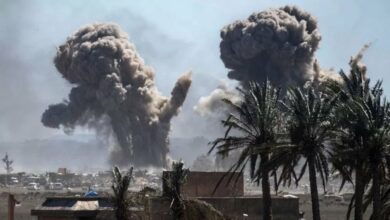
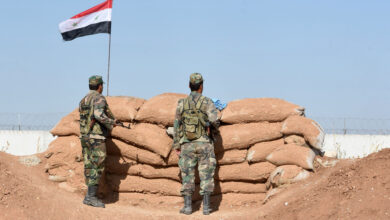
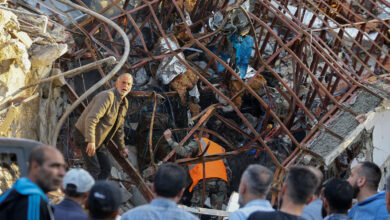

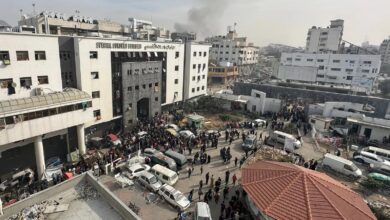
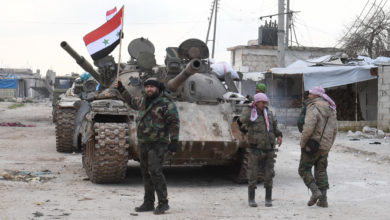

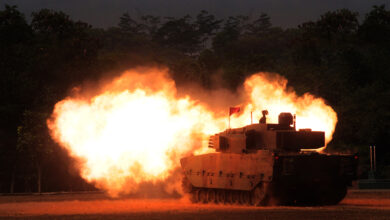

2 Comments